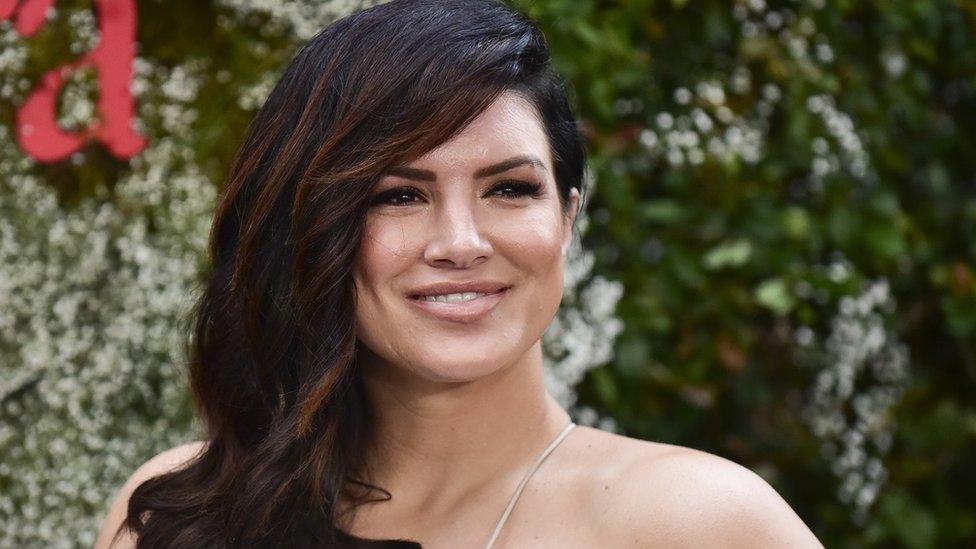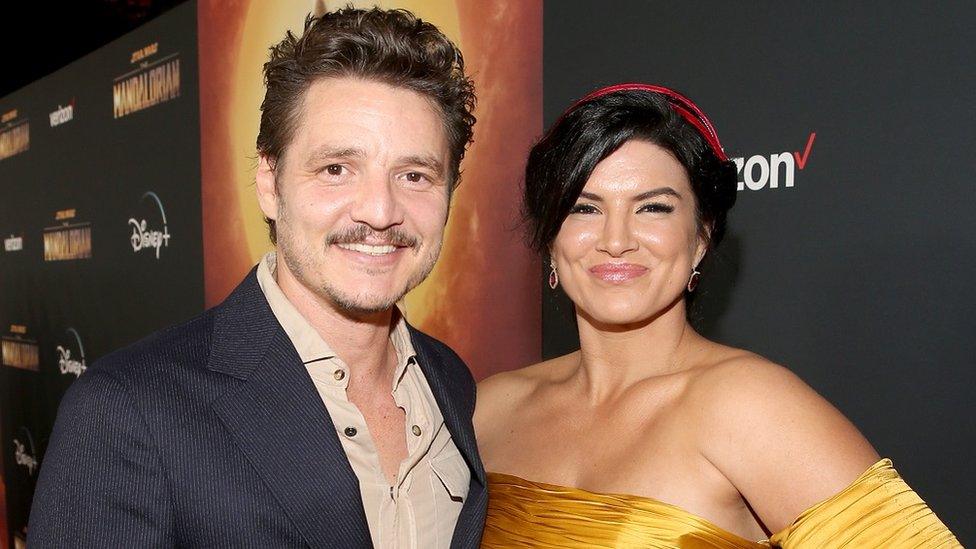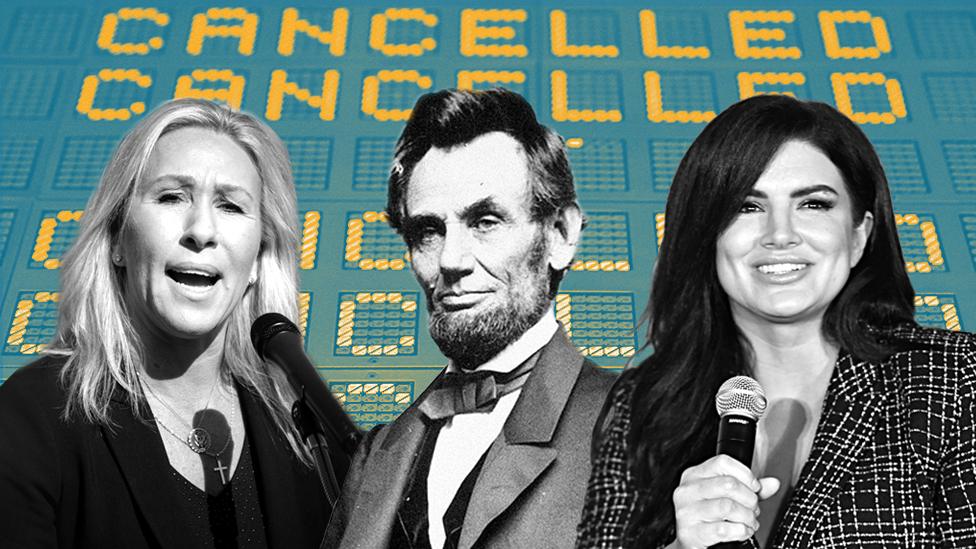Gina Carano: Mandalorian star accuses Disney and Lucasfilm of 'bullying'
- Published

Lucasfilm, who make The Mandalorian, called Gina Carano's comments "abhorrent and unacceptable"
Gina Carano, who was dropped from Disney's The Mandalorian over a controversial online post, has accused Disney and Lucasfilm of "bullying".
Earlier this month, the actress shared an Instagram story that compared "hating someone for their political views" to the treatment of Jewish people during the Holocaust.
Lucasfilm, who make The Mandalorian, called it "abhorrent and unacceptable".
But Carano has defended herself in an interview with The Ben Shapiro Show., external
"I've seen the bullying that takes place. I'm going to go down fighting," said the actress, who played Cara Dune in the series.
"You know how boxers headhunt? Sometimes they forget to go to the body. And I feel like Disney, or Lucasfilm, or whoever it is, maybe just certain people in that company, I feel like I've been being headhunted for the last, I don't know, how many months and you can feel it," she said.
Both Disney and Lucasfilm have been contacted by the BBC for comment.
Star Wars series The Mandalorian is shown on Disney Plus.
What exactly did her original post say?
In the controversial post, the former MMA fighter compared "hating someone for their political views" in the US to the treatment of Jewish people during the Holocaust in Nazi Germany.
Millions of Jewish people and other minorities were killed by the Nazis during World War Two.
Carano told conservative host Shapiro that the post was about how people are "tearing each other apart... I thought it might bring people together".
She added: "I've actually grown through the experience. It's not fair on the Jewish community to throw this out there. If you say the word Nazi or call someone a Nazi, you need to have a little bit more respect... so I understand that. I have love for everyone. I am not a hateful person."
Carano told Shapiro that she found out she wouldn't be returning to the series on social media, not from Disney or Lucasfilm direct.
Friendship and politics

Pascal plays the titular role in The Mandalorian
She also discussed a 2018 tweet posted by her former co-star, Pedro Pascal, external, which compared the treatment of undocumented migrant children in cages in the US to Jewish people in concentration camps.
"I adore Pedro," Carano said in the interview. "I know he's said and done some hurtful things. But we had an agreement after we realised we were a little bit politically different. We had an agreement that, first and foremost, you're a human being. And you're my friend first.
"I know that we both have mis-stepped on our tweets. We're not perfect. We're human beings. But he's not a bad human being. He's a sweet person."
Shapiro, like some other conservatives, pointed out that Pascal had not been sanctioned by Disney or Lucasfilm for his post.
Carano responded by saying she was "watched like a hawk. I had a problem because I wasn't going along with the narrative".
She said: "I'm a human being, I have so much to learn and grow. Being cancelled might become trendy one day but don't think when it happens to you that it's going to be easy. It may be one of the hardest things that you've ever been through. But each day that goes by... you stop feeling sorry for yourself. You show up."
What else has Carano posted?
It's not the first time Carano has found herself in hot water on social media.
She previously questioned whether vote counting during the US presidential election was fair, something former US President Donald Trump had raised repeatedly.
There has never been any evidence to support his claims of voter fraud.
She has also questioned the use of masks during the pandemic, which the WHO recommend as one of the tools to stop the spread of Covid-19., external
What's next for the actress?
Carano recently landed a new movie deal with Shapiro's The Daily Wire, a US conservative website.
She told Deadline last week: "The Daily Wire is helping make one of my dreams - to develop and produce my own film - come true. I cried out and my prayer was answered.
"I am sending out a direct message of hope to everyone living in fear of cancellation by the totalitarian mob. I have only just begun using my voice which is now freer than ever before, and I hope it inspires others to do the same. They can't cancel us if we don't let them."

Have any two words become more weaponised?

What do a series of recent controversies tell us about the politics around "cancel culture"? Read Anthony Zurcher's analysis.

Follow us on Facebook, external or on Twitter @BBCNewsEnts, external. If you have a story suggestion email entertainment.news@bbc.co.uk, external.
- Published11 February 2021

- Published18 February 2021
